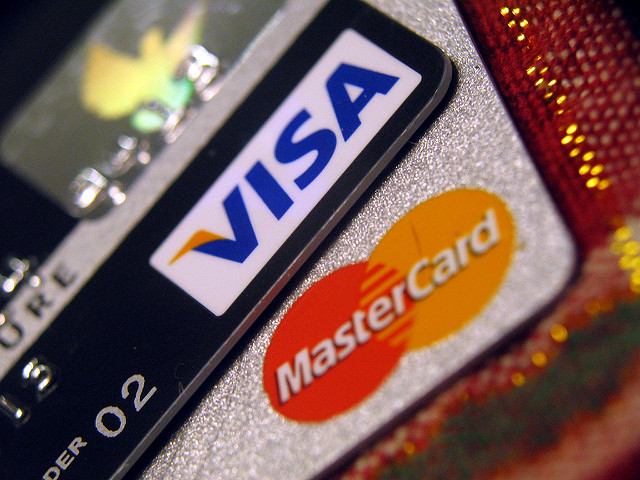Investing in cryptocurrencies is about to get harder—and a lot more expensive. Two of the world’s largest credit card processors, VISA and MasterCard, have just changed the way that the purchase of cryptocurrencies like Bitcoin and Ethereum are processed—reclassifying them as “cash advances” instead of “purchases”.
Now, instead of just having to pay the standard four percent credit card transaction fee when purchasing virtual currencies from platforms like Coinbase, investors will be charged an extra five percent by the credit card companies themselves.
If the whopping nine percent in base fees doesn’t dissuade investors, the interest that immediately begins compounding daily just might. Cash advances garner some of the highest interest rates at an average of 24.24 percent, with some credit cards charging up to 36 percent.
Purchasing cryptocurrencies using credit cards has already become a growing hurdle for tenacious investors. Major banks like JPMorgan Chase, Bank of America, and Citigroup have already announced that they will be banning their credit cards from being used to purchase cryptocurrencies. These new changes and regulations are coming on the heels of growing fear that the depreciation in value of cryptocurrencies will make some investors unable to repay their bank if the purchase was made on credit.
Other purchasing options still exist if you are hoping to jump onto the cryptocurrency bandwagon. Banks’ new regulations don’t affect purchases made with debit cards, and transferring bank funds (while slower and inherently riskier than an instant purchase) is still a viable route. You may just want to wait until the cryptocurrency market stabilizes before hopping aboard. Bitcoin has lost more than half of its value since peaking at around $20,000 less than two months ago, and other virtual currencies had similar demises.
photo credit: frankieleon CC















